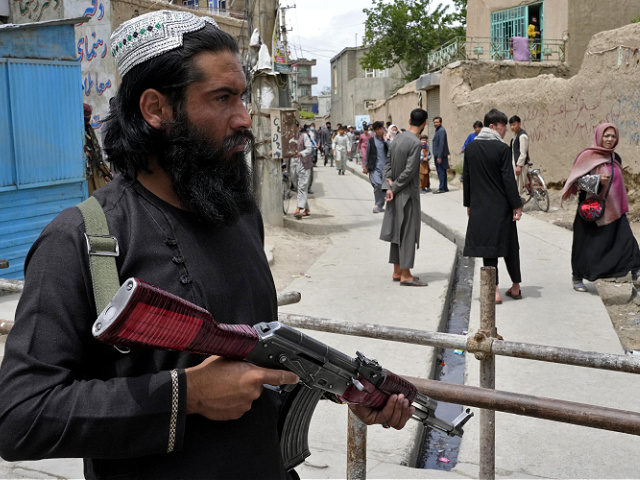Twin bomb blasts targeted a boys’ secondary school in Kabul, Afghanistan, on Tuesday, killing at least six people and wounding roughly 24 others, the Kabul-based Tolo News reported.
Two bombings caused by improvised explosive devices occurred in quick succession outside the Abdul Rahim Shahid boys’ high school on the morning of April 19, Kabul police spokesman Khalid Zadran told Agence France-Presse (AFP) on Tuesday. The first explosion detonated as students were leaving morning classes and the second went off a short time later, as emergency medical crews were attempting to respond to the first bombing.
“An official familiar with the matter who declined to be named said the explosive devices had been hidden in backpacks and one had detonated inside the school gates,” Reuters reported.
A third bombing via hand grenade targeted an English language school named Mumtaz Tuition Center near Abdul Rahim Shahid high school on Tuesday morning, reportedly before the twin explosions at the secondary school. The incident caused no deaths but injured at least one person.
“Three blasts have taken place … in a high school, there are some casualties to our Shia people,” Zadran told some media outlets.
The Kabul neighborhood in which Tuesday’s attacks took place is called Dasht-e-Barchi and is populated mainly by members of the Shia Hazara community. Hazaras are an ethnic and religious minority within Afghanistan that have previously been targeted by Sunni Muslim terror groups active in the country, such as the Islamic State of Iraq and Syria (ISIS). So far no group has claimed responsibility for Tuesday’s school bombings in Kabul.
“In May last year at least 85 people — mainly girl students — were killed and about 300 wounded when three bombs exploded near their school in Dasht-e-Barchi,” AFP recalled on April 19, noting that no group claimed responsibility for the incident.
Hazaras constitute between ten and 20 percent of Afghanistan’s majority Sunni Muslim population of 38 million. The minority group “has long been the target of mass-casualty attacks [in Afghanistan], some blamed on the Taliban during their 20-year insurgency,” AFP recalled on Tuesday.
The Sunni Muslim-based Taliban jihadist organization seized power of Afghanistan’s government, based in Kabul, in August 2021. The Taliban claims it has regularly raided suspected Islamic State hideouts in Afghanistan, mainly in the country’s eastern Nangarhar province, since taking power nearly one year ago.
“Taliban officials insist their forces have defeated IS [Islamic State], but analysts say the group is a key security challenge,” AFP observed on April 19.

COMMENTS
Please let us know if you're having issues with commenting.